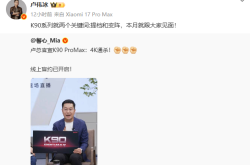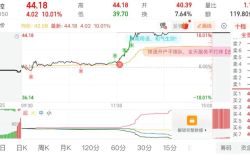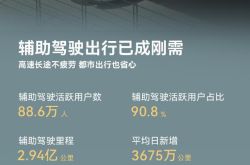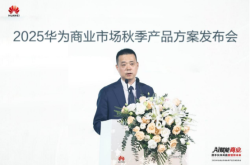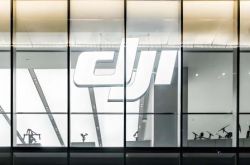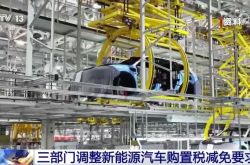Tencent's Automotive Business: From the Forefront to Behind the Scenes
![]() 06/12 2024
06/12 2024
![]() 665
665
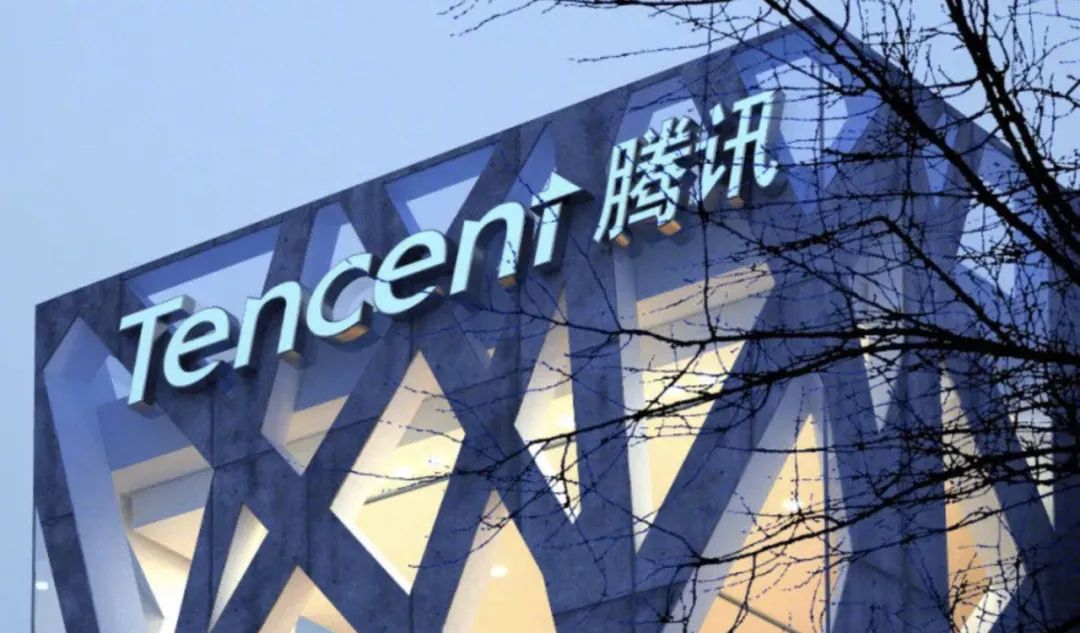
/// Being a "toolman" is Tencent's survival strategy in the automotive business.
Editor: Xiao Ying
Since 2015, Tencent has been deploying its automotive business, evolving from initial eco-connected vehicles to intelligent cockpits and now to the integration of vehicles and the cloud. Meanwhile, Tencent announces new partnerships with automakers every year, including collaborations with Toyota and Mercedes-Benz at this year's Beijing Auto Show.
However, over the years, the results of Tencent's automotive business transformation seem less significant, and even major automaker partners have begun to turn to other large companies like Huawei for collaboration.
We have also observed that Tencent's cooperation with automakers in the field of intelligent cockpits is no longer as close as before, gradually shifting from deep customization to the integration of single-point functions.
At the same time, Tencent's automotive business strategy has shifted from originally empowering the B-end from the C-end to creating a tool chain product for B-end services, moving from the forefront to behind the scenes.
01
Expanding in Quantity, Declining in Quality
Official data shows that Tencent's intelligent cockpit products have cumulatively served over 15 million vehicles to date. In 2022, this figure was over 8 million vehicles.
From the data, Tencent's intelligent cockpits have achieved decent results in the automotive industry in recent years, with a continuous increase in the number of implemented models. However, looking back at the specific implementation of product functions and specific models, the situation is not so optimistic.
Automakers' layout in intelligent cockpits has gone through a stage from phone projection to deep integration of the underlying vehicle OS.
At that time, automakers wanted to quickly replicate the mobile phone ecosystem onto the vehicle system. Therefore, Tencent, with its largest domestic ecosystem content system, became a popular choice for automakers. Especially with the news of WeChat being integrated into vehicles, it seemed to show the industry the birth of a super APP on vehicle systems in the future.
Tencent's key customers for intelligent cockpits have basically started cooperating during this stage.
For example, in 2018, Tencent and Changan Automobile jointly invested in Wutong Auto Connect, and with the help of Wutong Auto Connect, provided Changan Automobile with intelligent cockpit integration capabilities.
The Changan CS35 PLUS, which went on sale in October 2018, was equipped with Tencent's AI in Car intelligent ecosystem, effectively bringing Tencent's intelligent cockpit system capabilities onto the vehicle.
In 2019, at the China International Smart Industry Expo, Tencent's cooperation with Changan Automobile continued to deepen, jointly displaying a series of intelligent construction achievements such as the Wutong TINNOVE system with WeChat Car Version functionality and Tencent's Smart 4S Shop solution.
However, due to various factors such as safety, the integration of WeChat Car Version did not cause a sensation in the industry and did not become a popular APP on vehicle systems.
At the same time, as time progressed, users' demand for content ecology in vehicle systems did not explode as expected, coupled with technological deficiencies in areas such as human-vehicle interaction experience at the underlying level, the development of intelligent cockpits gradually lagged behind intelligent driving.
This has led to Tencent's C-end advantage in the intelligent cockpit track becoming increasingly insignificant.
Among the models where Tencent's intelligent cockpits have been implemented this year, taking the Chery iCAR 03 as an example, although its vehicle system is a deeply customized development jointly undertaken by Chery and Tencent, including commonly used navigation maps, WeChat Car Version, QQ Music, and other content, Chery iCAR 03 has not put all its eggs in one basket, integrating functions such as Huawei HiCar into the vehicle system.
In addition, Tencent's intelligent cockpits have gradually shifted from originally systematic empowerment to the integration of single-point functions in mass-produced models.
For example, last year, "Tencent Smart Parking Payment" was first launched on the NIO App Store, "WeChat Car Card" was integrated into GAC Toyota models, and "My Car Key" jointly developed by Tencent and Yinji was integrated into GAC Toyota's first pure electric SUV, the bZ4X.
At this year's Beijing Auto Show, Tencent announced a partnership with Mercedes-Benz, planning to introduce the world's racing mobile game "Need for Speed™: No Limits" into the Chinese market and make it available through OTA on Mercedes-Benz vehicles equipped with the third-generation MBUX intelligent human-machine interaction system.
A more intriguing phenomenon is that Tencent has begun to seek cooperation with more Tier 1 suppliers, hoping to expand its influence in the automotive industry through the power of Tier 1 suppliers and thereby attract more automaker customers.
On April 24th, at Tencent's TimeDay event, Tencent reached cooperation agreements with multiple component suppliers such as Dasheng Technology, Black Sesame AI, WeRide, and Zhixing Auto, conducting in-depth cooperation in areas such as automotive marketing, intelligent driving, and intelligent cockpits.
On June 5th, Tencent Smart Mobility and ECARX Technology announced an upgrade to their strategic cooperation, planning to jointly explore future mobility scenarios based on ECARX's automotive intelligence solutions and leading ecosystem, combined with Tencent's technologies and services in areas such as big data, cloud computing, artificial intelligence, maps, and automotive entertainment ecosystem.
Undoubtedly, Tencent's intelligent cockpit products are gradually shifting from original deep integration to the integration of single-point functions in the automotive market. Although the number of mass-produced models is increasing, the tightness of cooperation with automakers in the field of intelligent cockpits is not as good as before.
02
Continuous Adjustment of Automotive Business Strategy
According to public information, 2015 marked the official starting point for Tencent's automotive business deployment.
Since 2015, Tencent has held a press conference closely related to its automotive business almost every year. Over the years, Tencent has continuously adjusted its business strategies to better integrate its capabilities with the automotive industry.
In 2015, Tencent officially established the Tencent Auto Connect department. The business logic at that time was to create a Tencent Automotive Intelligence (TAI) system, positioning itself as a digital assistant for automakers, working together with automakers to build an in-car ecosystem.
A year later, at the Tencent Global Partner Conference held in November 2017, Tencent released the "AI in Car Strategy" for the first time and announced strategic partnerships with major OEMs such as GAC, Changan, Geely, BYD, and Dongfeng Liuzhou Motor.
From Tencent's "Tencent Auto Connect Development Platform" in 2015 to the "AI in Car Strategy" in 2017, what Tencent wanted to achieve actually did not increase in volume. Essentially, it was still based on Tencent's content ecosystem advantages to provide a connected vehicle solution, including security, content, social, voice, big data, AI, and more.
In November 2018, Tencent released the "Intelligent Mobility Strategy" and introduced a business matrix of "four horizontals, two verticals, and one platform." In essence, it was a packaged solution that integrated research results in connected vehicles and autonomous driving, as well as Tencent's previous products such as maps, ride-hailing codes, and travel services.
"Four horizontals" refer to four business matrices of intelligent mobility, including Tencent Auto Connect, Tencent Autonomous Driving, Tencent Location Services, and Tencent Ride-hailing Code. Tencent stated that this is the foundational platform to support the upgrade of the mobility industry.
"Two verticals" refer to Tencent's massive content platform and security guarantee system.
At the same time, Tencent AI and Tencent Cloud serve as the platform, providing underlying support for the business matrix and helping automakers establish their own connected vehicle cloud platform and super brain.
Another noteworthy mention is that in 2018, Tencent also deployed a product in the direction of autonomous driving: the simulation platform TAD Sim 1.0.
By 2019, Tencent's automotive business messaging had changed again, proposing to be a good implementer of industrial digital upgrading from three levels: the relationship between "people-vehicle-store-factory," the relationship between vehicles and the environment, and the service-oriented nature of travel.
At the same time, Tencent Auto Connect TAI was upgraded to version 2.0, introducing an "ecological connected vehicle solution" that provides a lightweight, ecological, cross-platform, and cross-terminal tool chain.
In 2020, Tencent released the TAI 3.0 version of its intelligent cockpit solution. Compared to TAI 2.0, the incremental information is the creation of two in-car apps: Tencent Companion (an in-car lifestyle service assistant) and Tencent AudioFun (audio content), as well as the launch of Tencent Mini Scenes, an open platform based on the WeChat Mini Program architecture.
At the same time, in the direction of autonomous driving, Tencent released the second-generation simulation platform TAD Sim 2.0. At this press conference, Tencent also included tools for digital management and digital marketing.
At Tencent's 2021 Digital Ecosystem Conference, Tencent once again upgraded its intelligent mobility business blueprint, stating that it would provide solutions for four scenarios: building good cars, selling good cars, using good cars, and enterprise management, based on its core capabilities in "cloud, map, and ID."
Tencent also released the TAI 4.0 intelligent cockpit solution. The core of 4.0 is the integration of geographic information and Tencent's ecological services, which can provide users with "active scenario-based services" by combining positioning and mapping capabilities.
In June 2022, Tencent Smart Mobility announced a newly upgraded "vehicle-cloud integration" strategic plan. The so-called "vehicle-cloud integration" plan breaks down the business layout into three levels: vehicle-end, mobile-end, and cloud-end:
At the vehicle-end, Tencent introduces products and capabilities such as TAI, intelligent driving maps, high-precision maps, intelligent scene engines, and in-car mini scenes to assist in the intelligent evolution of the vehicle-end.
At the mobile-end, Tencent leverages the connectivity of WeChat and WeCom and launches products such as the WeChat "Tencent Travel Service" mini program to connect mobile and automotive scenarios.
At the cloud-end, Tencent introduces an industry cloud solution covering the entire automotive value chain from research and development, manufacturing, marketing, operations, and after-sales services.
Through the vehicle-cloud integration model connecting the vehicle-end, mobile-end, and cloud-end, Tencent helps the automotive industry establish effective digital connections, build data-driven closed loops, and improve production efficiency in all links.
In April 2024, at Tencent Smart Mobility's Technology Open Day, Tencent once again updated its "omni-intelligent" solution, covering five core scenarios: automotive research and development, production, marketing, services, and enterprise collaboration. At the same time, Tencent announced upgrades in areas such as intelligent automotive clouds, intelligent cockpits, and overseas expansion.
Tang Daosheng, Senior Executive Vice President of Tencent Group and CEO of the Cloud and Smart Industries Group (CSIG), re-articulated Tencent's positioning in the automotive race: insisting on being a "digital assistant" and "ecosystem builder" for automotive industry upgrades.
He explained that on the one hand, Tencent will continue to consolidate its core technical capabilities in areas such as cloud and mapping to lay a solid foundation for the intelligent development of the automotive industry.
On the other hand, Tencent will work with upstream and downstream partners in the industry chain to actively explore innovative applications of cutting-edge technologies such as AI large models in various scenarios in the automotive industry, driving new intelligent development in the automotive industry with AI.
A clear trend is that after continuous adjustments, Tencent's automotive business strategy is gradually narrowing its service scope and clarifying its role as an industrial "toolbox".
03
Cloud Services Become the Core of the Automotive Business
If in the early era of automotive intelligence, intelligent cockpits were the core of Tencent's automotive industry efforts, then since 2022, cloud services have been becoming the core of Tencent's deep cultivation in the automotive industry.
This point can also be seen in Tencent's financial reports.
In 2022, Tencent generated revenue of 554.6 billion yuan, of which the to B business segment generated revenue of 177.1 billion yuan, becoming Tencent's largest source of revenue.
Notably, the financial report mentioned Tencent's new progress in the automotive and mobility field for the first time. The report pointed out that Tencent is helping automakers enhance their IT infrastructure and product services, such as customized intelligent cockpit solutions, digital maps, and data management.
In November 2023, Tencent's third-quarter financial report for 2023 showed that total revenue for the quarter was 154.625 billion yuan, representing a year-on-year increase of 10%. Among them, the automotive cloud business achieved significant growth.
Tencent explained that with the landing and application of large models, the automotive industry is moving towards a "new intelligence" development stage, which has also brought greater demand for cloud computing power.
According to Tencent, over 100 automakers and mobility technology companies, including NIO, Mercedes-Benz, Bosch, and NVIDIA, have used its cloud services.
In just a few years, Tencent's transition from specific product functionality services at the upper level to in-depth cloud infrastructure and large model services at the underlying level reflects the changing demands of the automotive industry for technological development.
With the rise and development of large models, onboarding large models into vehicles has become an important trend. However, behind this trend, higher computing power is also required, making cloud computing crucial.
In fact, as the third cloud player in the domestic market, Tencent Cloud has certain competitive advantages in the automotive cloud race.
IDC data shows that in the domestic market, in the second half of 2023, Alibaba Cloud, Huawei Cloud, China Telecom, Tencent Cloud, and China Mobile were the top five in the IaaS market, while Alibaba Cloud, Tencent Cloud, Huawei Cloud, Amazon Web Services, and China Telecom were the top five in the PaaS market.
In 2022, Tencent officially launched "Tencent Intelligent Auto Cloud," a one-stop cloud solution tailored for the intelligent automotive industry, and announced the opening of a special intelligent auto cloud zone in Shanghai, which is the industry's first dedicated cloud platform specifically built for the fields of autonomous driving and intelligent vehicles.
Later, Tencent also opened an intelligent auto cloud zone in Huailai, Hebei, pioneering a "dual-zone" model in East China and North China to better serve the extensive needs of the mass production stage of intelligent driving.
Based on the cloud zones, Tencent Intelligent Auto Cloud can achieve full-stack isolation from the public network, ensuring data security throughout the entire process from research and development to mass production. At the same time, cloud components will be optimized specifically for industry-specific needs, truly achieving "dedicated cloud for dedicated use".
However, in the cloud market, Tencent also faces challenges such as slowing growth in the cloud computing market and difficulty in continuously expanding its market size. At the same time, many cloud vendors such as Alibaba Cloud, Huawei Cloud, and Baidu Smart Cloud have also entered the automotive industry.
Tencent Cloud currently belongs to Tencent's CSIG department (Cloud and Smart Industries Group), which has not yet achieved profitability, reflecting to some extent the pressure Tencent faces in the to B direction.
Tencent's founder, Pony Ma, put forward requirements at the beginning of this year's annual meeting: "Except for particularly important strategic products and basic investments, we must quickly move ashore and surface."
The automotive industry has a large base and market volume, and major internet companies have also taken the automotive industry as a key market to drive their second growth curve, investing heavily and continuously.
However, for Tencent, whether cloud services can bring true competitiveness to its automotive track remains to be seen after the competition in the intelligent cockpit business becomes sluggish.

